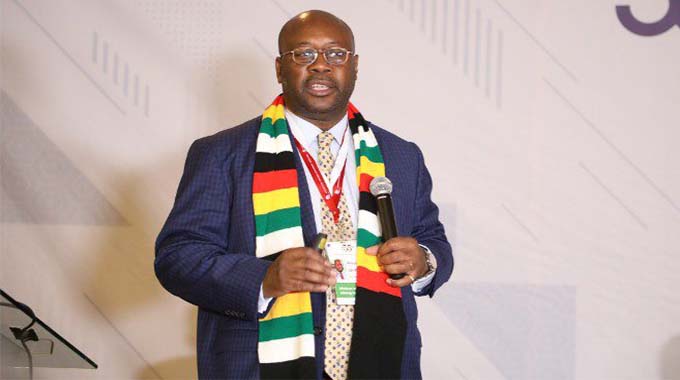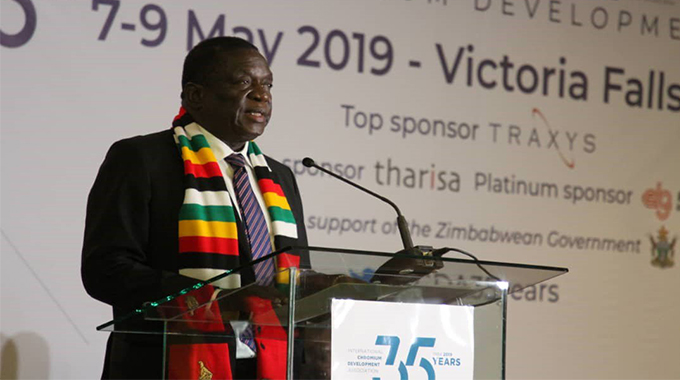Government targets increase in mining production

Leonard Ncube in Victoria Falls
ZIMBABWE desperately needs investors in the mining sector given its potential to steer economic growth towards attainment of an upper middle income vision by 2030, a Cabinet minister has said.
Government targets to increase ferrochrome production to close to one million tonnes by year 2022.
Addressing mining experts and potential investors at the 35th International Chromium Development Association (ICDA) conference here yesterday, Mines and Mining Development Minister, Winston Chitando, said Government was working hard to implement an integrated Mineral Development Plan whose goal is to increase production among other deliverables.
The development plan will be guided by specific policies that Government is working on such as the diamond development policy, iron ore, nickel and chrome development policy, coal and hydrocarbons policy, gold development policy, lithium development policy and platinum development policy.
“The country has a huge potential to increase its ferrochrome production from about 350 000 tonnes mined last year. More exploration and capital is required to upgrade the reserves and increase underground production,” said Min Chitando.
“While 2018 production of around 350 000 tonnes was a new record for the country, new capacity being commissioned and planned for commissioning within the year could see a 20 percent increase of ferrochrome production capacity to 418 000 tonnes in 2019.”
The minister said despite having the world’s second largest chrome ore resource, the country’s ferrochrome industry was still under-developed.
He said Government was working on strategies towards a vibrant industry in line with the Transitional Stabilisation Programme (TSP) and vision 2030. Among the strategies is use of modern technology in the exploration and smelting, said Minister Chitando.
“There is huge potential for the country to increase production. We have natural resources and human resource and what we need is the dollar capital. Most of the smelting technology in the country is old and there is need to invest in new technology especially technology that can process fines.
“New technology will also improve smelting efficiencies thereby improving viability of the industry. In the medium term, planned further expansion will see Zimbabwe ferrochrome capacity increase to around 956 000 tonnes by 2022,” said Minister Chitando.
He said there was a need for significant investment in developing the mining sector capacity from exploration through to production.
Minister Chitando said Zimbabwe holds about 900 million tonnes in deposits which is 12 percent of the global 7,5 billion tonnes and is second to South Africa.
According to 2018 figures, Zimbabwe produced an estimated 1,358 million tonnes of ore making four percent of the world output of 33,7 million tonnes. Chrome ore output reached an all-time low of 186 000 tonnes in 2015 since 2001 due to decreasing output of ferrochrome.
However, Minister Chitando said output picked up following the lifting of the ban on the export of chrome ore by Government and rose to about 1,358 million tonnes in 2018.
During the same five year period to 2023, Government targets to reach at least two million tonnes of stainless steel of which one of the key ingredients is ferrochrome.
There is also need for investment into infrastructure networks such as roads and rail as well as in the mining of minerals such as nickel, iron ore, coal and other resources to support steel production, Minister Chitando said.
He said the Mineral Development Plan will earn about US$4 billion in 2019 up from US$3,2 billion last year and likely to reach US$12 billion by 2023.
Government has also repealed the indigenisation policy, which restricted foreign investors to a 49 percent shareholding while efforts are being made to implement the “use it or lose it principle” to enforce exploration on idle mining claims.
— @ncubeleon








Comments